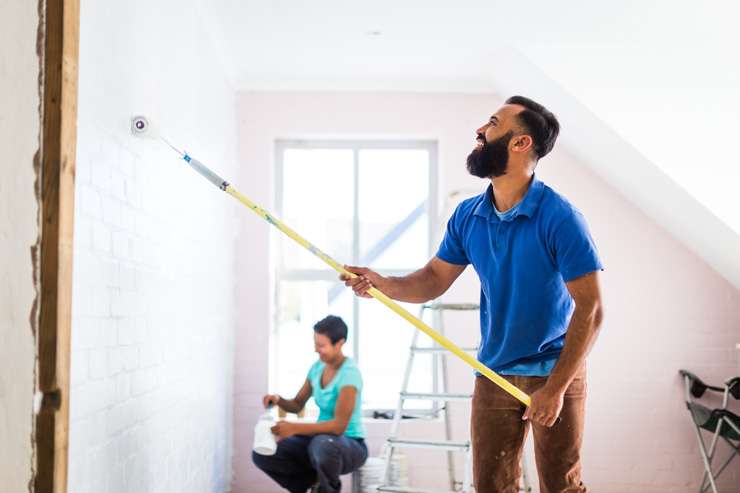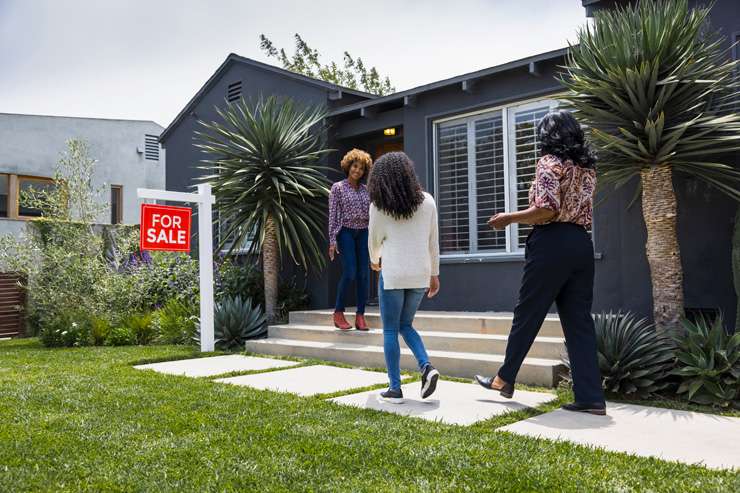In this guide, we share our top tips on getting the house selling process started, the steps you'll need to take and some of the most important things to consider.
If you’ve never sold a house before, there is a learning curve to go through. The more you know in advance, the fewer surprises there will be.
1. Research the market you are selling into
Sellers do best when they understand local market conditions.
Start your property search
- Real estate agents can help you get familiar with the local area and what properties sell for. It’s best to get out and visit as many open homes as possible as well to get your own feel for what is happening in the market. It will help give you a realistic assessment of how much your property will sell for and how long the sale process might take.
- Visit OneRoof.co.nz to see how much properties in your area are worth as well as recent house-sold prices. It’s surprising how much you can learn from the data available on properties.
- Property markets go in cycles according to supply and demand. Sometimes it’s easier to sell, and get a better price, when there are more buyers in the market than houses for sale. That’s called a "seller’s market" because it favours the seller.
At other times prices may fall or move sideways and there are fewer buyers than sellers. That’s a buyer’s market. Think of the property cycle as a clock with the boom at 12pm, followed by a slide at 3pm, and the bottom of the market at 6pm. That’s followed by a rising/hot market at 9pm and back to the top of the market at 12pm.
2. Determine the value of your home
If you want to get the best price for your home, you need to know what it’s worth. Consider getting your house valued so you won’t be tempted to take a low-ball offer, and also don’t expect too much. House sales can fall through when vendors fail to accept realistic offers.
- OneRoof property estimates are a good place to start. They use data from Valocity, and are based on figures such as recent sales, council valuations and market trends.

A registered valuer can give you a realistic estimate of how much your home is worth. Photo / Getty Images
- Real estate agent appraisals. A real estate agent can give you a good idea of what your home might sell for. By law, they must be provided in writing, reflect current market condition, and be supported by comparable information on similar sales in similar locations.
- Registered valuation. A registered valuer is a specialist who just values homes. The valuer will visit the property, know the local real estate market well, and have good knowledge of planning and building.
Valuation is not an exact science, but usually gives the most accurate indication of the price to expect for your property. Valuers are at arm’s length from a sale and do not have vested interests about who you list the property with and how much it ultimately sells for.
Read more: Stay up to date on the latest New Zealand house prices
Your real estate agent can advise on whether to sell your property with an asking price, or use other methods such as auctions, tenders and deadlines sales with no set price. Even so, you will need to know how much you are willing to accept to sell the home.
Beware of expecting too high a price. If your price expectations are too high you may struggle to find a buyer. Sometimes the best offer is the first offer.
Using a real estate agent with good negotiating skills is often the best way to achieve the sales price you want. Preparing a house for sale and staging it can make it more appealing to buyers and help create competition.
3. Calculate the costs of selling your home
It usually costs tens of thousands of dollars to sell a home in New Zealand. Most of those fees are taken out of the sale price. They include advertising costs, photography and videography, repairs and maintenance, additional cleaning, staging, estate agent listing fees, a LIM (land information memorandum), auctioneer costs, conveyancing (legal) fees, moving costs, bridging finance if you buy a new home before you sell your existing one, and storage (if necessary).
If you don’t sell, you may need to pay the cost of the marketing and advertising, and any legal fees you’ve incurred along the way.
4. Sell first or buy first?
If you’re selling to move home, you must choose when to buy your new home. Selling your existing home first, then buying the next one can make sense. The other option is to find a house to buy then put your existing one on the market.

Presentation matters when you're selling. It is important to get your property in the best possible shape before taking it to market, so factor in the cost of any renovations or touch-ups into your budget. Photo / Getty Images
Should you sell your property before you buy the next one? Selling first gives you peace of mind knowing you have the money from your existing home sale. The risk is you can’t find the right home to buy you may end up renting for a period of time. If house prices are rising, this could be problematic.
You may only want to move if you find the right house. In that case you may want to buy first. There are mortgage implications to consider. Should you end up not selling your existing home as quickly as you anticipated, you may be left paying two mortgages. “Bridging finance” may be available for you if you end up in this situation. But it can be very costly paying two mortgages. A good way around this is to include a clause in the sale and purchase agreement that makes the purchase conditional on the sale of your home first. Not all sellers will agree to this, especially in a hot market where they know they could sell their home to someone else.
5. Hire a good real estate agent
It costs tens of thousands of dollars to sell your home, with a real estate agent. It can be tempting to try to sell privately. Agents argue they achieve premium prices and pay their way.
Choosing a good real estate agent could be the difference between selling and not, getting a top price, or just scraping in over reserve. Think long and hard before choosing to sell privately. It can work, but do you have the time and skills to do a good job?
6. Preparing your house for sale
When you’re selling a house, great preparation will help your chances of finding a buyer and getting the best price.
Preparation pays off when selling a home. You’ll need to declutter, depersonalise, and get ready for open homes. In some cases, renovation may pay off. Start by stepping back and viewing the home from a buyer’s perspective. Asking friends, family and real estate agents for honest input can really help.
Do you need to renovate to sell? Never assume you need to do major renovations to sell. Take advice from local real estate agents about how much the renovation will add to the sale price.
A new kitchen or bathroom may be what’s needed to sell at a good price. On the other hand, it may not recoup the money you invest. Buyers often like to add their own touches and prefer a blank canvas to a home renovated to someone else’s taste. Sometimes elbow grease and decorating can add proportionately more to the home’s saleability and the price.

A real estate agent is your representative when selling your home. Photo / Getty Images
Bear in mind renovations always take longer than expected. This will add time to the selling process so start early and give yourself as much time as possible.
7. Market the property and hold open homes
Once you have hired a real estate agent you will need to list your property and hold open homes. Many sellers opt to stage their home.
8. Negotiate and accept an offer
The process of receiving offers from prospective buyers varies depending on the method of sale. It is very important you understand the difference between offers made at an auction, deadline sale, multi offers and tenders as they each have their own nuances.
9. Exchange and settle
Once you accept an offer on your home you begin the process of settlement. You’re almost there but there are still some hoops to jump through!
Make sure you understand the settlement process, especially pre-settlement inspections.
Read part two of our Home Sellers Guide: When to sell your house














































































